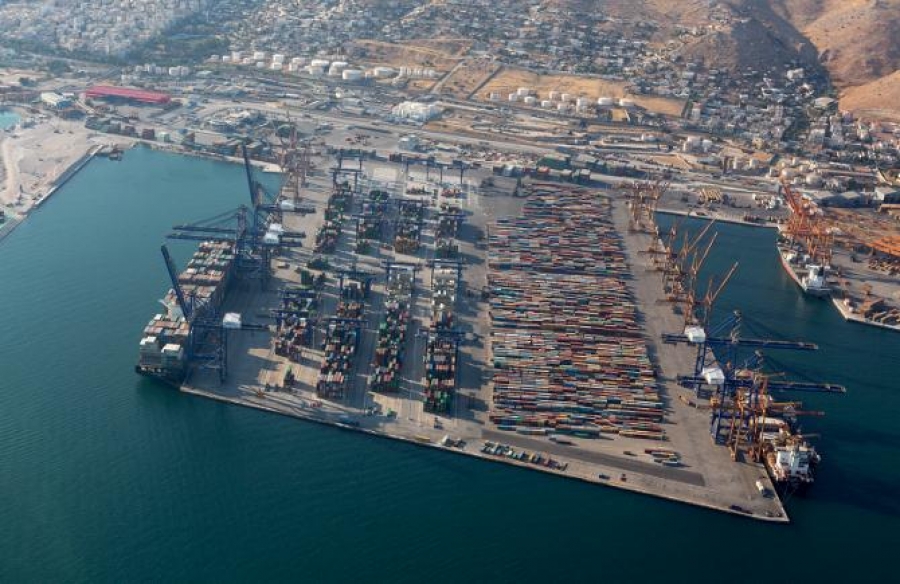
Despite the success of the privatisation of Greece’s two leading ports Piraeus and Thessaloniki, port operations is to center on concessions agreements rather than sell-offs as Greek ports endeavour to become more competitive.
Since control of Piraeus was sold to China’s Cosco, the country’s largest port, has become the fastest growing container port in the world according to PortEconomics, the web-based initiative aiming to advance knowledge exchange on seaport studies. Piraeus is seventh among Europe’s largest trading ports and occupies 38th place worldwide.
Piraeus climbed six places in the global ranking of commercial ports in 2017 according to Lloyd’s List (Global Ports Top 100) and is expected to climb higher with the completion of the works on Pier III in early 2019, as the port’s capacity will increase to 7.2m teu. In 2017 the port handled 4.1m teu.
In March a special investment vehicle, South Europe Gateway Thessaloniki (SEGT), comprised of Germany’s DIEP, France-based Terminal Link and Belterra Investments, controlled by Greek-Russian businessman and investor Ivan Savvidis, finalised the purchase of a 67% stake in the Athens Stock Exchange-listed Thessaloniki Port Authority, along with its management, for roughly EUR231.9m paid to Greece’s privatisation fund Taiped.
Already heavy investment is getting underway with the aim of turning the northern Greek port into a gateway to eastern and central Europe as China develops its ‘belt and road’ concept.
However, Christos Lambridis, secretary general of Ports, Port Policy and Shipping Investments at the Shipping and Island Policy Ministry has said the port privatisation model followed in the case of the country’s two major ports, will not be applied for the 10 other Greek ports operating as Société Anonymes.
“The concession of port activities will be the preferable liberalisation model from now,” said Lambridis.
With control of another two ports in northern Greece, neighbouring Kavala and Alexandroupolis looming considerable interest is being expressed, particularly by US and European investors. Interest has also come from Cyprus, Israel, Qatar and Algeria,
Alexandropoupolis is to be a key hub in the piping of natural gas from Eastern Europe to Italy and central Europe. An LNG terminal is to be built near the northern city.
Further, the Peter G Livanos-backed NYSE-listed GasLog has signed the operation and maintenance agreement for the provision of related services to the Alexandroupolis floating storage and regasification unit (FSRU) project.
GasLog, which has a 20% stake in the Alexandropoulis project Greek operator Gastrade, said the partners now aim to align the Alexandroupolis FSRU project with the start-up of the Greece-Bulgaria gas interconnector with the FSRU start-up in the second half of 2020.
Copyright Ships & Ports Ltd. Permission to use quotations from this article is granted subject to appropriate credit given to www.shipsandports.com.ng as the source.
